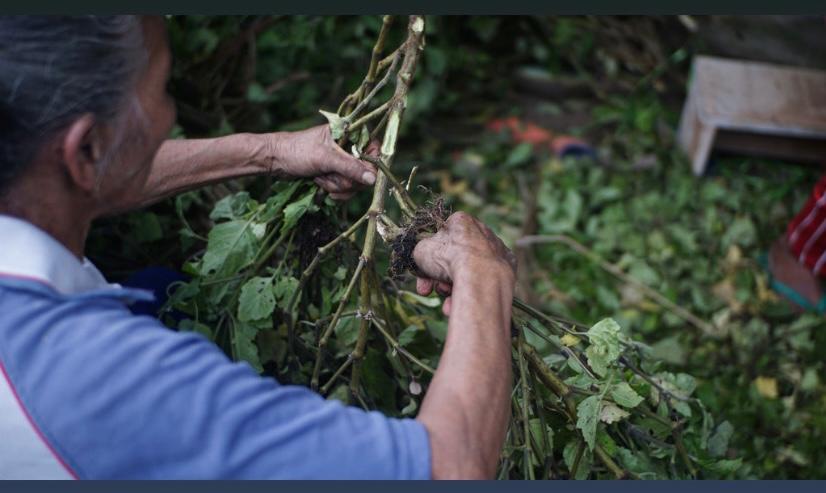
Patchouli is one of the essential oil producing plants, and it is used as a raw material in the company's various products. Not only the oil products, PT Kimia Farma Tbk also creates innovations in the utilization of patchouli plant liquid waste into various derivative products that have selling value to meet daily needs.
Process Essential Waste (Olis) Center is a community development program conducted by PT Kimia Farma Tbk as a form of implementation of the company's Social and Environmental Responsibility (CSR) initiative. PT Kimia Farma Tbk sees that patchouli plants, which are potential natural resources in Blitar Regency, can support chemical raw materials for the company's production.
As one of the largest essential oil producing regions in Indonesia, it is also directly proportional to the amount of waste generated in each production process. Each patchouli plant can only produce 2.5% essential oil and leaves 97.5% solid and liquid waste.
The implementation of CSR is carried out using the Creating Share Value (CSV) approach through the Enabling Local Cluster Development Approach by developing the potential of the community in Semen Village, Gandusari District, Blitar Regency as an area that supports the company's raw materials to be able to increase the productivity of patchouli plants, innovate in creating new products, and align the company's commitment to sustainability aspects.
The liquid waste in the form of hydrosol produced from the essential oil distillation stage still contains around 0.2% essential oil. The waste is then transformed into derivative products that can meet daily needs in the form of Olis Bath Soap, Olis Hand Soap, and Olis Dish Soap. The derivative products have been marketed through local stores and village business cooperatives, and will become part of PT Kimia Farma Tbk's supply chain.
The data also states that community empowerment using the Creating Shared Value (CSV) approach can be felt by the community, with a Community Satisfaction Index (SMI) value of 78.50%.
The highest IKM value is in the Program Planning Indicator, with a percentage of 99.18% (very satisfied), because the community feels that they have been involved in planning. The program is considered to be in accordance with the problems and potentials that exist at the location of program implementation.
In the future, through the community development that has been implemented, it can expand to develop Semen Village as an integrated, modern and sustainable essential oil center tourism village by taking into account economic, environmental and social aspects.